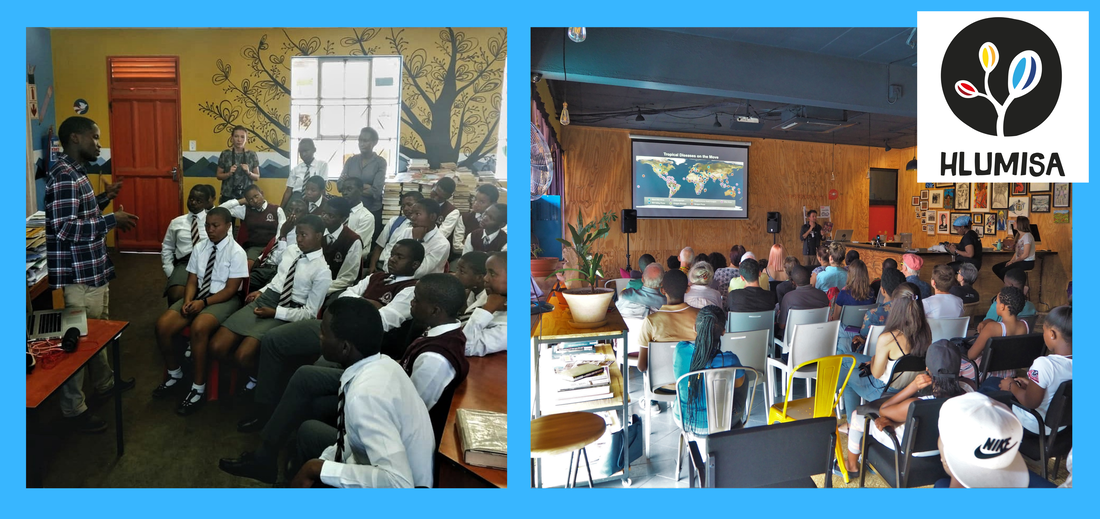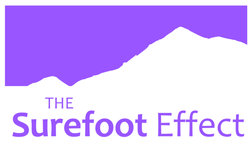|
In Eswatini, the Southern African country formerly known as Swaziland until 2018, a new movement is taking form to engage young people in a broad range of climate change actions. In a country where flights and overconsumption aren’t options for most people, worldwide climate advice needs to be replaced with initiatives rooted in local reality. Even the Eswatini average carbon footprint is low, there are still actions to take to mitigate climate change effects. Local understanding and education, improvement of infrastructure and engagement of the young people which make up a large part of the country’s population, can support Eswatini towards a sustainable future. As places and people are globally interlinked, we get valuable insight into the state of the world when listening to voices from Eswatini. Supporting the youth in taking action At Surefoot we have talked with Dane Armstrong and Tamika Du-Pont from Eswatini, who are on the steering committee of a youth led climate change network called Hlumisa (which translates ‘to make grow’ or ‘to sprout’). They are also engaged in the Eswatini Climate Coalition which offers a platform for engaging in climate change news and projects around climate justice. This is one of a series where we are speaking with people from organisations around the world, to get first-hand insight into climate change and environmentally friendly actions. Dane, who is an artist who also works in climate adaptation, policy and food systems, explains the need to engage young people in climate change actions, “There is a gap between the governmental goals and citizens participation. With our platform we share news and information, reach out to schools, create workshops, organise marches, and use the creative arts to raise awareness around climate change.” Like other places on the planet, the Covid-pandemic has put many activities on hold. Since there has been a shift to online activities, inequality has become more visible. Internet connections are expensive for many people, and once connected the internet is not always reliable. Their work with high school students aged 15 - 30 years old, including a festival and the pilot of a climate platform, was postponed due to the pandemic, but the activities are again going forward as they look to rebuild and forge ahead. Time for change With a background in environmental science and concern of the social aspects of the environment, Tamika points out the importance of forming a community where different skills come into play, whether it’s about saving energy or creating art. “A small wave of climate change awareness is here, but many more need to know about the consequences and initiatives to build resilience. It should be followed up with governmental actions and rebuilding of the infrastructure. There is a call for optimisation of the national transportation system within the small sized country. We need for example cycle lanes, and a more reliable public transportation system to allow people to participate in greener and more sustainable means of living,” explains Tamika. Recycling is a simple example of a weak spot in the infrastructure. Dane mentions the lack of information and access to recycling (which does exist as an option), even to people who have the means and desire to participate. There are further steps to take when encouraging change on a personal level. Reducing meat towards a more plant-based diet is a challenge due to cultural habits, and there is not much information in circulation about the environmental benefits. Also, embracing agroecological food systems, promoting organic gardens and buying locally produced food and other products would help mitigate the climate change effect. “People should be exposed and encouraged to adopt these possibilities,” states Tamika. The storm to initiate change Heavy rain, extreme storms, heat waves, drought and high temperature in October, which are normally experienced in December, are some of the potential climate change effects already being felt in Eswatini. This is on the back of the extreme drought that was felt in the region between 2015/2016, which thrust climate change into everyone's minds due to the huge personal effect this had on everyone’s lives. Roads, agriculture and livestock are constantly at risk or affected. “Last weekend almost everyone in my neighbourhood was on their roof fixing holes after a heavy rain and hailstorm,” informs Tamika. In a time where it’s difficult to predict what will happen in the wake of climate change, uncertainty has become a weighty actor. “People can see that climate change is happening, but often it has been forgotten on the other side of the storm. But now, the bubble starts to burst,” says Dane and explains about these early days of awareness and action. Discussions, debates and aiming for shared solutions between citizens and the city councils are wanted. When climate change impacts strike, people are often left alone to deal with the effects, for example repairing their houses. If support appears in a sudden climate change disaster, most often it is short-term oriented, like the provision of food supplies. This is important, but there is a demand for a shift in political attitude towards climate change challenges. Empowering agencies already established in the local areas would strengthen the forces already there to meet emergency situations. Furthermore, viewing solutions to climate change impacts not as an expense but as an investment in long-term sustainable solutions would support the future of the country and its people. If such initiatives become part of supporting Africa as a whole, this will make the continent stronger. And again, on an even bigger scale, if we at a global level are concerned about what is happening to various places on the planet, we will all learn more about climate change and what it takes to deal with it. Dane mentions Madagascar as a place with hardly any attention from the global society. The fourth largest island in the world, with animals and plants found nowhere else on the planet, is currently facing a devastating dry season which has left people in starvation. The UN predicts it might turn into the world’s first climate change famine[1]. Sharing is caring It might be a clichéd saying, but nevertheless sharing is caring. And shared communities are also what the young people want to be engaged in, when asking Tamika and Dane what the youth in Eswatini prefer among their offered activities. Platforms for sharing are essential for young people worldwide, and Eswatini is no exception - it is fundamental for change. Space to share knowledge, skills, experience, creative work and ideas. A place which invites young people to think and to be listened to, to be able to deal with challenges in their part of the world, and to be a part of the global community. By Gazelle Buchholtz [1] https://news.un.org/en/story/2021/10/1103712 If you like to follow the work of Tamika and Dane see more here:
www.eswatiniclimate.org, [email protected] Twitter: @ClimateEswatini Hlumisa email: [email protected] Tamika Du-Pont linkedin, Personal email: [email protected] Instagram: https://www.instagram.com/tamikadupont/
0 Comments
Leave a Reply. |
�
AboutHere’s a collection of some of our articles which have been in our newsletters or published elsewhere.
Archives
May 2024
|
Sign up TO SUREFOOT NEWS >>The Surefoot Effect equips people, communities and organisations with skills for sustainability and resilience.
|

 RSS Feed
RSS Feed




